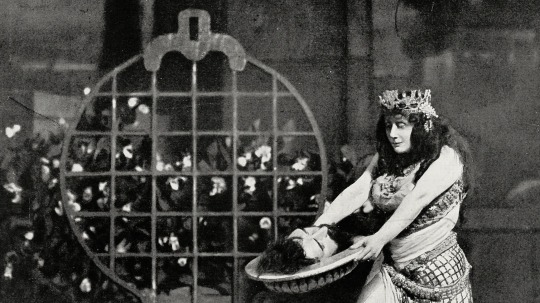#fatal opera
Explore tagged Tumblr posts
Text
youtube
0 notes
Text

#repo! the genetic opera#repo!tgo#fatal frame#dark coquette#morute#dolly aesthetic#dollcore#princesscore#coquette#angelcore#dollette#liz lisa
19 notes
·
View notes
Text

#theatre#musical theater#phantom of the opera#velvetsorrows#red velvet#red aesthetic#red art#red lipstick#burgundy make up#burgundy aesthetic#femme fetale aesthetic#femme fatale#female rage
16 notes
·
View notes
Text



Welcome to the 54th installment of 15 Weeks of Phantom, where I post all 68 sections of Le Fantôme de l’Opéra, as they were first printed in Le Gaulois newspaper 115 yeas ago.
In today’s installment, we have Part II of Chapter 23, “Intéressantes et instructives tribulations d’un Persan dans les dessous de l’Opéra: Recit du Persan” (Interesting and Informative Tribulations of a Persian in the Underside of the Opera: The Persian’s Narrative).
This section was first printed on Monday, 20 December, 1909.
For anyone following along in David Coward's translation of the First Edition of Phantom of the Opera (either in paperback, or Kindle, or from another vendor -- the ISBN-13 is: 978-0199694570), the text starts in Chapter 22, “It followed me, went where I went, and it was so silky-smooth on the ear that I felt no fear,” and goes to, “On that occasion, I also discovered the secret tunnel which led to the spring which trickled out of the wall, the cell dug out by the Communards and the trap which acted as Erik’s short cut down to the third level.”
There are some differences between the Gaulois text and the First Edition. In this section, these include (highlighted in red above):
1) Each chapter in the Gaulois publication is one number ahead of the chapters in the First Edition, due to the inclusion of “The Magic Envelope” chapter in the Gaulois.
2) Compare the Gaulois text:
…je l'avais moi-même trop étudié jadis avec Erik pour ignorer combien quelquefois, avec les trucs les plus simples, quelqu'un qui connaît son métier peut fair travailler la pauvre imagination humaine.
Translation:
…I myself had studied the subject too much in days past with Erik to remain unaware of how much, with the simplest of tricks, one who knows his trade can manipulate the weak human imagination.
To the First Edition:
…je l'avais moi-même trop étudié jadis : avec les trucs les plus simples, quelqu'un qui connaît son métier peut fair travailler la pauvre imagination humaine.
Translation:
…I myself had studied the subject too much in days past: with the simplest of tricks, one who knows his trade can manipulate the weak human imagination.
3) Compare the Gaulois text:
cet air terrible
Translation:
that terrifying look
To the First Edition:
cet air de menace enfantine
Translation:
that look of childish menace
4) Compare the Gaulois text:
demanda-t-il en reprenant son air enjoué
Translation:
he asked, regaining his cheerful air
To the First Edition:
demanda-t-il en prenant un air aimable
Translation:
he asked, taking on an amiable air
5) Compare the Gaulois text:
fin juillet 1909
Translation:
late July, 1909
To the First Edition:
fin juillet 1900*
Translation:
late July, 1900
* NOTE: The First Edition incorrectly states that the newspaper article in question was dated July, 1900. The article that Leroux was likely referencing was this front-page piece, "Le Dé-Tham vient de nous tuer,“ which appeared in Le Matin on 28 July, 1909.
6) This text appeared in the Gaulois, but was removed from the First Edition:
au bord d'une rivière
Translation:
on a riverbank
7) The text highlighted in blue above indicates an anachronism in Leroux’s narrative. As we recall from Chapter 8, Erik abducted Christine on the same night that he caused the chandelier to crash. In this chapter, however, the Persian accuses Erik of causing the chandelier crash some time before he abducted Christine.
8) Compare the Gaulois text:
Ah ! ricana-t-il, ça, le lustre… je peux bien te le dire !… Le lustre, ça n'est pas moi !… Il était très usé, le lustre… et je n'étais pas chargé, n'est-ce pas ? de le réparer.
Translation:
"Ah!” he laughted, “the chandelier… I can tell you about that!… The chandelier, that wasn’t to do with me!… It was very worn, the chandelier was… and I wasn’t responsible for fixing it, was I?”
To the First Edition:
Ah ! ricana-t-il, ça, le lustre… je veux bien te le dire !… Le lustre, ça n'est pas moi !… Il était très usé, le lustre…
Translation:
“Ah!” he laughted, “the chandelier… I will tell you about that!… The chandelier, that wasn’t to do with me!… It was very worn, the chandelier was…”
9) Compare the Gaulois text:
fatal nocher
Translation:
grim ferryman of the Underworld
To the First Edition -- NOTE: this is a typo:
fatal rocher**
Translation of this typo:
grim rock
** NOTE: This is the typo to end all typos! Read more about it here.
ALSO NOTE: Coward (mis)translated this typo literally as “wrecking rock.” In fact, the other major English translators who worked from the First Edition text also (mis)translated this phrase.
A notable exception is Lowell Bair, who based his 1990 translation of The Phantom of the Opera on a later abridged French edition of Leroux's novel, which corrected several of Leroux's First Edition typos, including "fatal rocher." Bair translated "fatal nocher" correctly as "the grim ferryman from the Styx." Unfortunately, since the French edition that Bair was translating from was abridged, Bair's translation is also abridged. Other than being abridged, it is one of the better English translations of Leroux's novel.
It is baffling why the First Edition translators didn’t sense that this was a typo, because "fatal nocher" was a common French literary phrase used to describe Charon, the grim ferryman of Hades in Greek mythology. It should have been easy enough to guess that the First Edition had misprinted the "n" as an "r".
The job of a translator isn’t to highlight an author’s mistakes; it is to make the author look their best in another language. It is not ethical for a translator to translate a typo literally without context. The First Edition translators should have rendered the phrase correctly, and then mentioned the "fatal rocher" typo in a footnote.
As it is, all the First Edition translators have transformed Erik from the "Grim Ferryman" into into a "Grim Rock." It would be a cool band name -- Erik could be the "Grim Rocker" -- but it's still not what Leroux wrote or intended.

10) Compare the Gaulois text:
S'ils avaient vu seulement ce dont Erik était capable
Translation:
If they had only seen what Erik was capable of
To the First Edition:
S'ils avaient su seulement ce dont Erik était capable
Translation:
If they had only known what Erik was capable of
11) Minor differences in punctuation, capitalization, and italicization.
Click here to see the entire edition of Le Gaulois from 20 December, 1909. This link brings you to page 3 of the newspaper — Le Fantôme is at the bottom of the page in the feuilleton section. Click on the arrow buttons at the bottom of the screen to turn the pages of the newspaper, and click on the Zoom button at the bottom left to magnify the text.
#phantom of the opera#poto#gaston leroux#le fantôme de l’opéra#le gaulois#phantom translation#fatal nocher#fatal rocher#grim rock#15 weeks of phantom#phantom 115th anniversary
25 notes
·
View notes
Text
Also the fucking way the entire show hinges on all these relationships that have years and years of development that we just don't see because we get there at the very end. We get the briefest glimpses and comments about their past. And yet it's enough to paint such a clear picture that when the tragedy hits, it fucking hits
#do you get that we know fucking nothing them. except we do#and how we dont know ANYTHING about Peter and Jason's relationship. BUT WE DO#i will die in my little hill that Bare might be one of the most well written shows ever. its so clever with it#because its so smart on where it outs all these details#giving us all these little details of the gang pkaying together as kids during All grown up? devastating. horrible. perfect#telling us. so briefly. so vaguely and poetically. about peter and Jason's beginning during fucking Bare???? fatal. never recover#and its also the kind of storytelling that only works in a musical#this has been my rant#bapo#bare a pop opera
16 notes
·
View notes
Text

Helene Stanton
#vintage#hollywood#actress#opera singer#film noir#femme fatale#retro#black and white#diva#classic hollywood#40's#50's#old hollywod glamour#the shoes
25 notes
·
View notes
Text


opera night starter pack:
la Forza del Destino poster
red shawl (long feathers along the edges)
box of poison darts
35 notes
·
View notes
Text

#romance#coquette#angelic#aesthetic#ballet#ballerina#music#classics#classical music#classical art#classical literature#opera#black swan#white swan#melanchaholic#rose#pastel pink#femme fatale
22 notes
·
View notes
Text






#hilda furacao#hilda#soap opera#brazilian#old television#90s aesthetic#religious art#religious imagery#red roses#women who love too much#divine feminine#divine female#femme fatale#dark femenine#so femenine so perfect
5 notes
·
View notes
Text
Janet Spencer sings 'O don fatale,' recorded at Camden on 8 March 1911.
American contralto Janet Spencer had a successful career in concert and oratorio. Born in Boston, Massachusetts, she made her debut at the age of 16 when she appeared with the Boston Festival Orchestra, touring later throughout the United States and Europe. She was an intimate friend of Geraldine Farrar, encouraging Miss Farrar in her Met career. In early 1911 she recorded nine sides for Victor, eight of which were published on this label’s prestigious Red Seal series. Later in her career she gave voice lessons in Hollywood, California, where she died in 1948 at the age of 74.
In the memoir “I PLAYED THEIR ACCOMPANIMENTS” by Elizabeth Harbison David, she recalls Miss Spencer, apparently very much out of character, suffering a terrible bout of stage fright prior to a November 4, 1010 concert at Mendelssohn Hall.
Few singers now before this public have developed their art so rapidly and in so many of its exacting phases as Miss Janet Spencer, contralto, who gave a song recital yesterday afternoon at Mendelssohn Hall. It was an occasion that offered an altogether unusual pleasure on account both of the interesting program of songs and of the truly remarkable skill, versatility and fine artistic power with which she sang them. Miss Spencer’s admirable contralto voice has been well known in New York concert halls for a number of years now, where it has been heard chiefly in oratorios. In turning her attention to songs she has penetrated deeply into a form of art that is in certain respects more subtle and more difficult. Miss Spencer’s voice is well remembered as a peculiarly rich contralto which she uses with freedom and spontaneity of utterance and with excellent style in most of the fundamentals of production, and in such matters as the control of breath and phrasing. Her diction might be a little clearer and more polished than it is, though it is by no means poor. And there are occasionally heard traces of the tendency to shade off from the tune pitch that once marred Miss Spencer’s singing. But none of these are sufficient to impair seriously the great pleasure that her singing of songs gives.
She has penetrated into the secrets of many different styles, and she has an altogether uncommon aptitude of identifying sentiments and emotions of her different songs and of setting them forth in a vivid and characteristic manner that is one of the essentials of the highest art in song singing. She began with the splendidly vigorous air, “Et Exaltavit,” from Bach’s “Magnificat,” which she sang last Spring in the Oratorio Society’s performance of that work, and her singing imparted to it its true splendor and its vigor. Far from Bach’s spirit were two ariettas by Gluck, the caressing “On s’etonnerait moins” from “Armide,” and the delightfully arch little “Je cherche a vous faire” from an opera stated to be “Les Pelerins de Mecque,” (though its French title should be “Le Rencontre Imprevu,”) which she sang with most ingratiating charm. There was another sudden change of mood to Handel’s fiery “Furibondo spira il Vento.” It is not often given to this public to hear in Handel’s most rapid “divisions” such clearness, brilliancy, and apparent ease as was heard in Miss Spencer’s delivery of this air, which was splendidly vigorous.
Her Brahms songs were three that are of less known, though very beautiful ones, and also in marked contrast of mood, which she most aptly characterized. With these were consorted two truly fine and original songs by Henry Hadley, songs which Miss Spencer ought to be thanked for introducing here: “Stille, traumende Fruhlingsnacht,” and “Morgengesang.” The former, especially, is laden with the dreamy fragrance of the Spring night, a song full of atmosphere. There was special interest in five Russian songs by Borodine and Moussorgsky, of original and characteristic quality, characterisitic, rather, of the composers than of their nationality, though the Russian fondness for the Oriental strain was clearly to be heard in Moussorgsky’s “Chant de Josua Navine,” which Miss Spencer sang in what may be supposed to be the original Russian.
There was also to be heard his quaint “Chanson d’Enfant,” something of that influence that is said to have operated strongly in forming the style of Debussy. Bordine’s brilliant “Dissonance” Miss Spencer had to repeat. Her English songs were by Engel, Ware, Mallinson, and Heyman, and the “Beyond” by Engel showed what could be done after Debussy, as Moussorgsky showed what could be done before him.
#classical music#opera#music history#bel canto#composer#classical composer#aria#classical studies#maestro#chest voice#Janet Spencer#contralto#O don fatale#Don Carlos#Don Carlo#Giuseppe Verdi#classical musician#classical musicians#classical history#history of music#historian of music#musician#musicians#diva#prima donna
2 notes
·
View notes
Note
nie zhuyan makes soaps on the regular after moving to Gusu to marry a-yu? A lot of them go towards various people or groups in Gusu (family members/friends, the baoshi, etc.) though he sells some of the special ones.
I forgot that Nie Zhuyan actually learned how to make soap at some point, so when I came back to this ask, I thought he was making...soaps.
#as in...soap operas#the lan theatre enjoyers are used to terribly romantic tales of hardship and star-crossed love#now here comes nie zhuyan writing soap operas for the caiyi playhouse#random lan disciple 445 used to go to caiyi to watch the butterfly lovers and now the playhouse performs nothing but NZY's latest soaps#babies are getting switched at birth#character x had VERY IMPORTANT INFORMATION to share but now they have amnesia#homme and femme fatales are everywhere you turn#everyone's unproblematic fave just committed murder but it was REALLY their secret twin!#random lan shixiong is in tears#he just wanted to watch the cowherd and the weaver girl for the 6457th time was that too much to ask??#nie zhuyan banging out yet another thrilling soap: yes. yes it is.#asks#nie zhuyan
9 notes
·
View notes
Text










In sleep he sang to me, in dreams he came
8 notes
·
View notes
Text
a lot of operas exhibit the femme fatale trope, which…i know was created by men and is technically misogynistic because it demonizes female sexuality. however…girl kill boy because girl to sexy and powerful and boy inferior…kinda based.
not to mention these roles look so fun to play, like Salome? she dances naked and then makes out with a severed head, sounds lit as fuck if you ask me.

3 notes
·
View notes
Text
Everyday, thousands of Barbie and Ken Dolls go through at least 10 divorces, 12 fatal car crashes, 5 kidnappings, and 2 scooby doo mysteries in one child's play session
#The soap opera drama of barbie dolls#I work at a library and dear god the amount of drama that happens#One barbie went through 3 fatal car crashes#pray for her#shes doing great though#if you know you know#more drama than the titanic
7 notes
·
View notes
Text
di tale amor che dirsi save me
#also I love the recurring thing in verdi operas I've started calling the 'one-two verdi punch'#aka when he throws an insanely gripping piece of music at you#and then the next one is also practically at the same level if not even better (imo. they make me go insane at least)#see: di tale amor -> tace la notte + deserto sulla terra in trovatore#morrò ma prima in grazia -> eri tu che macchiavi in ballo#solenne in quest'ora -> urna fatale and then the final carlo+alvaro duet -> pace pace mio dio in forza#o don fatale -> rodrigo death scene in don carlo#rambling
0 notes
Text
stan is the only member of the pines twins^2 to never make a deal with bill and i think he needs more credit for that.
ford makes, just, so many deals with his demon boyfriend
dipper literally trades his body to bill in sock opera
and while i will die on the hill that it was never her fault, mabel is tricked into making a deal with him for weirdmagenon.
but stan never gets tricked. the only time he comes close was when he was pretending to be ford but that was with the sole purpose of getting bill erased. never does bill get to him or twist his thoughts. for being the "dumb one" he's surprisingly rational in this was.
nobody matches bill intellectually, ford's fatal flaw is that he thought he did, and the pines family wins because they have an emotional core that bill never had (the power of sibling bonding saves the day and i love it) but ill go out on a limb and say that out of everyone, stan is the only one to match bill's street smarts.
bill's a master manipulator but stan is a professional con-artist with no respect for the law, you tell me who's coming out on top.
stan successfully faked his own death, ran a business for 30 years, taught himself some sort of advanced engineering to repair the portal, evaded local, federal and international authorities from the age of 18, and did it all without any support.
and going back to when he pretends to be ford to get bill to enter his mind, that scene makes stan the only character to ever outwit bill.
anyways this has been a stan pines appreciation post, thank you and goodnight
#gravity falls#the book of bill#book of bill#grunkle stan#stan pines#stanley pines#stanford pines#ford pines
27K notes
·
View notes